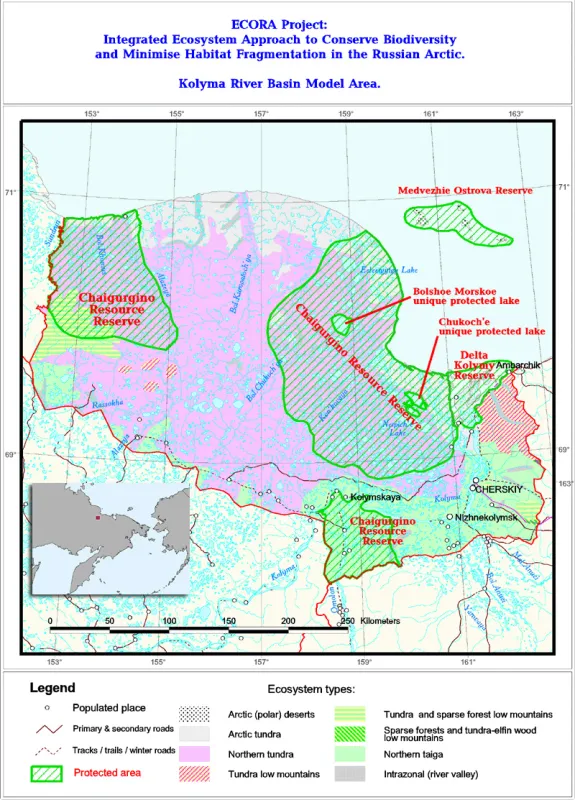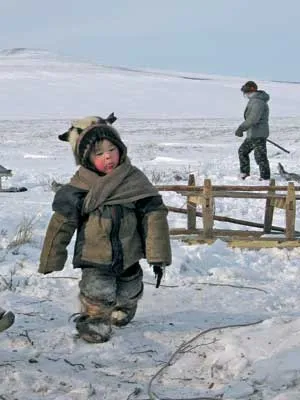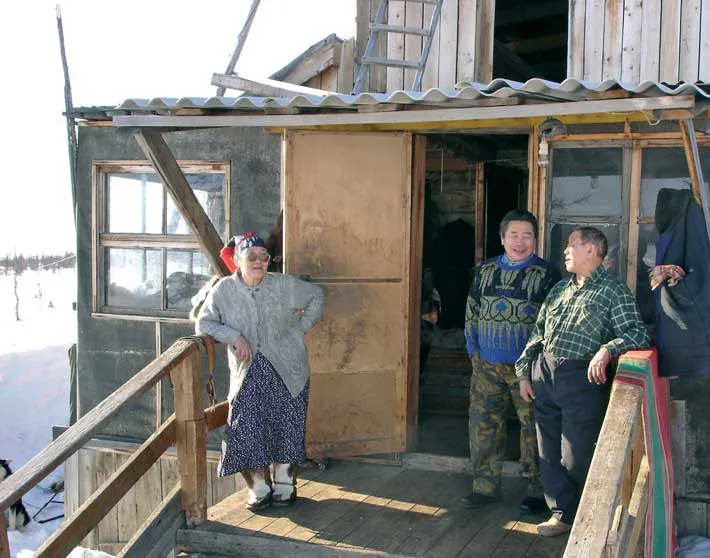Snowchange Oral History
Climate Change
The Lower Kolyma region in the Republic of Sakha-Yakutia, Russian Federation, where Turvaurgin practices their reindeer herding is situated at 69 degrees north latitude. It is one of the most remote places on the planet, with the most severe continental climate on northern hemisphere, temperatures often reach -60 Celsius in January and February. In the next region in Verkhoyanskii ulus the coldest recorded temperature of the northern hemisphere, less than -70 Celsius has been recorded. The climate is a mix of continental dry and Arctic coastal influence from the East Siberian Sea. The Chukchi live in the coldest inhabited place on the planet. Ecosystems are in a relatively untouched condition and remain pristine. They have not fragmented even though some hydroelectric and mining impacts have been detected in the region. However the climate has begun to change with dramatic results. This is a source of great concern for the local Indigenous peoples as well as for the whole global climate.
The Turvaurgin and Nutendli reindeer herders have observed over the past 10 years the melting of the previously continuous permafrost in their home areas. Whole lakes and river courses have melted, and altered the landscape. The full impacts to the seasonal reindeer herding are yet to be determined—now community has had to start using alternative reindeer routes and certain subsistence lakes cannot be used anymore, as they have emptied when the permafrost walls have melted. It is clear however that the cycles of water and impacts to the local ecosystems are severe if the stable permafrost is melting. The Kolyma River is eroding on the riverbanks and this is impacting the village of Kolymskaya as many buildings have been constructed on the riverbank and they need to be moved now.
Herders have as well reported new weather phenomenon during the winters—ice rain that freezes the lichen pastures that the reindeer depend on—thus contributing to death of reindeer in the community. January and February are traditionally the coldest months of the year with temperatures that can reach -50 to -60 Celsius, but now temperatures above 0 C and rain have been reported. Traditional knowledge does not recall such events from the past.
The melting of the permafrost contains severe impacts for the global climate system as well. There are at least the same amount of greenhouse gasses as produced by the industrial output of the world today trapped in the Siberian permafrost. This is being released as the melting proceeds. Western science (for example Walter et al. 2006) has agreed with the observations that the herders have made (documented in Mustonen 2009)—the permafrost is melting. The situation is very urgent and dangerous.
The community of Turvaurgin decided in April 2010 to apply for membership to the UN-led Indigenous Peoples Climate Change Assessment to address these questions.
For more background information, see the associated scientific paper:
References
Mustonen, Tero. 2009. Karhun väen ajast-aikojen avartuva avara. In Tutkimus kolmen euraasialaisen luontaistalousyhteisön paikallisesta tiedosta pohjoisen ilmastonmuutoksen kehyksessä. Finland: University of Joensuu Press.
Walter, K. M., S. A. Zimov, J. P. Chanton, D. Verbyla, and F. S. Chapin. 2006. Methane bubbling from Siberian thaw lakes as a positive feedback to climate warming. Nature 443: 71–75.



